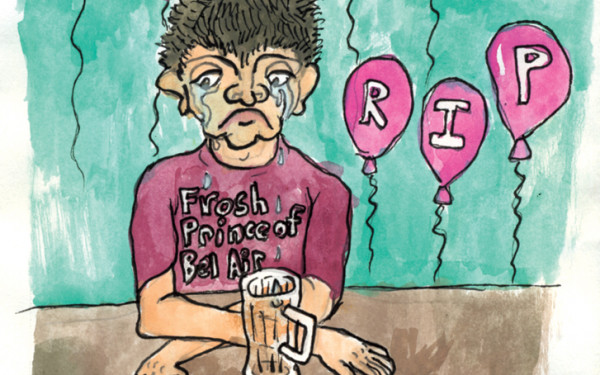A Look Into ASFA’s New Sexual Harassment and Discrimination Policy
Policy Aims to Be More Survivor Centred Unlike Previous Policy
The Arts and Science Federation of Associations has adapted a new sexual harassment and racial discrimination policy, focused to be more survivor friendly, as a result of criticism of their former policy.
The policy will no longer require the complainant and the accused to attend a mediation together to resolve complaints.
“The last policy encouraged mediation between a complainant and a respondent—so that’s not particularly survivor centered,” said ASFA Advocacy and Executive Coordinator Marguerite Rolland. “You’re forcing a survivor or victim or face their abuser or harasser.”
Irish Studies Student Association ASFA councillor and task force co-chair Margot Berner—who had a large role in developing the new policy—called out the former policy earlier this year for being problematic for survivors.
ASFA was required to create a task force, as a result of the Mei Ling settlement in 2015. Mei Ling was a former ASFA executive who faced racial discrimination and sexual harassment from two ASFA colleagues in 2015. The Task Force aims to enforce sanctions to prevent sexism, racism, and other forms of discrimination, harassment or violence within ASFA and its community.
More recently, the task force’s mandate became relevant again as ASFA’s Former-President Jonathan Roy was accused last semester of sexually harassing a colleague of his.
“As a survivor myself, one of the most important things that I think this policy does is allow the complainant the power to suggest what they think is an appropriate action, as well as allow representatives from [the Sexual Assault Resource Centre] and [the Centre for Gender Advocacy] to be voting members of the investigative committee,” said Berner.
Those who want to make a complaint against someone for sexual or racial harassment or violence will multiple avenues at their disposal.
A complainant can fill out a form at the offices of either ASFA, the SARC, the CGA or they can email the investigation committee directly.
The former policy required the complaint to be sent to an executive at ASFA.
“That brings power dynamics into play, because you have to send your complaint to a coordinator of the association that you might have a complaint with—so that’s not always the most comfortable or most fair thing to do for a survivor or victim in any case,” said Rolland.
Rolland said with the resources of the CGA and the SARC, the complainant can now sit down with someone who can go over the form with them and represent them during the complaint process.
An investigation committee will be formed to deal with complaints. It will consist of two ASFA councillors that have knowledge of sexual, racial violence and human rights, who will be appointed through ASFA’s council.
Rolland said there will also be a legal consultant in the investigative committee to aid the team.
Rolland said some individuals won’t be permitted to sit on the investigation committee, including “anybody that has been convicted of anything that is contrary to what the investigative committee is going to be doing.”
“We are open to ways that we can make this more survivor-centered and more geared towards protecting people who have experienced harassment, discrimination and violence,” Margot Berner.
The Investigation Process
Each complaint of harassment or violence will be followed by an investigation. The investigation committee will have three weeks to look into the accusation and come to a conclusion, unless the situation at hand justifies an extension.
Rolland said the investigative committee will try to reach out to the people involved to see if they can provide testimony.
“Whether they can or cannot respond, it’s not mandatory,” she said.
Rolland said there will then be a meeting with the investigation committee and the individual who has made the complaint. She said the complainant can bring along a representative or advocate from the SARC or the CGA, and the investigating committee will go over the facts that have been brought forth by the complainant.
“The investigative committee can issue different outcomes,” said Rolland. “They will always ask the person who has brought the complaint, what they would like done from the situation,” said Rolland.
Once a conclusion has been reached by the investigation committee and evidence is found showing the accused discriminated or sexual harassed someone, different disciplinary measures can be taken with the complainant’s recommendations.
The accused could be required to take either an informal or formal warning, or be required to attend sensitivity training. They could also see a temporary suspension from their position, removal from their position or exclusion from ASFA’s events.
If the investigative committee does not find evidence and come to the conclusion discrimination or harassment has occurred, the case is closed and all parties shall be informed.
Rolland said ASFA’s members will be required to read and sign a waiver in the next few weeks acknowledging they understand the policy and that it governs their work.
Berner said this policy is better than the old one, but their work is definitely not finished.
“We are open to ways that we can make this more survivor-centered and more geared towards protecting people who have experienced harassment, discrimination and violence,” said Berner. “We are going to give it a try and we are going to be open to trying again if there need to be changes.”




_600_375_90_s_c1.jpg)
_600_375_90_s_c1.jpg)
_600_375_90_s_c1.jpg)